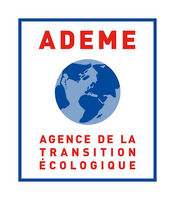Search eceee proceedings
Impact of COVID pandemic on energy efficiency in the EU: A quantitative assessment
Panel: 4. Monitoring and evaluation for a wise, just and inclusive transition
Authors:
Didier Bosseboeuf, ADEME, France
Bruno Lapillonne, Enerdata, France
Laura Sudries, Enerdata, France
Abstract
In response to the COVID pandemic which has drastically affected the European economies, the EU countries have implemented recovery plans sometimes supporting investment for ecological transition. In the meantime, we observed in 2020, a reduction of 6% and 5.6 % of the primary and final energy demand respectively, which finally (and fortunately) allows the EU to reach its 2020 energy efficiency targets. In 2020, the resulting energy intensity has increased of +0.5%, after 6 years of regular decrease.
Therefore, for energy policy analysts, the question arises to evaluate the relative contribution of the economic depression versus the energy efficiency on the target achievement in the recent years.
In general, energy efficiency deteriorates in periods of deep recession in productive sectors (industry, services and freight transport): indeed, energy consumption does not follow the reduction in economic activities because of lower use of industrial capacities, or lower load factor for trucks, leading to an increase of indicators of specific consumption and a lower “efficiency”, not from a technical viewpoint but from an operational viewpoint.
The so-called “decomposition analysis” (see ISO 500047) methodology allows to perform such evaluation. However, this data demanding methodology relies on detailed data which are only available at n-2 or n-3 years, refraining its use for our 2020 issue. To overcome this methodological barrier, we have developed a new methodology so called “early estimates of the energy efficiency Index“ as it is used for elaborating the recently published ECEEE energy efficiency scoreboard.
After some quantitative observations on the impacts of the COVID crisis on activity and energy demand, this paper will present and discuss the methodology used to assess the impact of the COVID crisis. We will apply this methodology through two case studies: 1) at EU level for all sectors allowing to evaluate the level of energy savings; 2) An in-depth analysis of the transport sector in France (the most impacted sector, due to lock down and travel restrictions) and for which detailed end-use data are available. Finally, as a conclusion, we will compare the impact on energy efficiency between the 2008 financial crisis and the COVID crisis.
Downloads
Download this presentation as pdf: 4-349-22_Bossebeuf_pres.pdf
Panels of
1. Dynamics of consumption: less is more?
2. Efficiency and beyond: innovative energy demand policies
3. Policy, finance and governance
4. Monitoring and evaluation for a wise, just and inclusive transition
5. Towards sustainable and resilient communities
6. Energy-efficient and low-carbon mobility for all
7. Policies and programmes for better buildings
8. Innovations in products, systems and building technologies



























